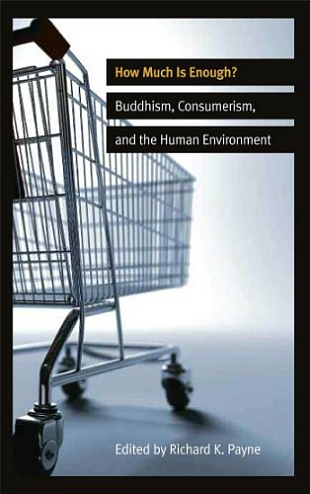This scholarly collection of essays is edited by Richard Payne, Dean and Yehan Numata Professor of Japanese Buddhist Studies at the Institute of Buddhist Studies in Berkeley, California. The paperback is based on the International Symposium on "Buddhism and the Environment" held on September 14, 2003. The editor shares a story he heard from his mother:
"Once two Zen monks were traveling from one temple to another. As they approached the temple, they discussed the question of whether it would be an appropriate place for them to pursue their practice. Passing over the bridge near the temple, they noticed a cabbage leaf floating downstream. They paused and began to reconsider whether a temple that would allow such waste could possibly be a true hall for training in the way. Just then, the temple gate opened and a monk with a long pole came rushing toward them. Startled, they watched as the monk caught the cabbage leaf, bowed to them and returned to the temple. Nodding to one another, the two monks entered the gates of the temple, confident that they had found a place where they would indeed be able to make progress on the path."
This wonderful teaching story about Buddhism and the environment sets the scene for the essays which follow. The question at the heart of the discussion is: Just how much is enough? In one of the best essays, Duncan Ryuken Williams writes about the efforts by the chief priest of Gyozenji Temple in Tokyo to protect trees. Stephanie Kaza offers a Buddhist critique of consumerism and laments the global consequences of overconsumption. Mitsuya Dake presents a Pure Land Buddhist perspective on environmentalism and the lessening of desires. David Landis Barnhall changes the mood drastically with a free-wheeling consideration of the ecological vision of poet and essayist Gary Snyder along with his belief in bioregionalism. Tetsunori Koizumi sees in the Eight Precepts a prescription for sustainable living.
Buddhist understandings of impermanence, craving, and interdependence shine through these essays.
